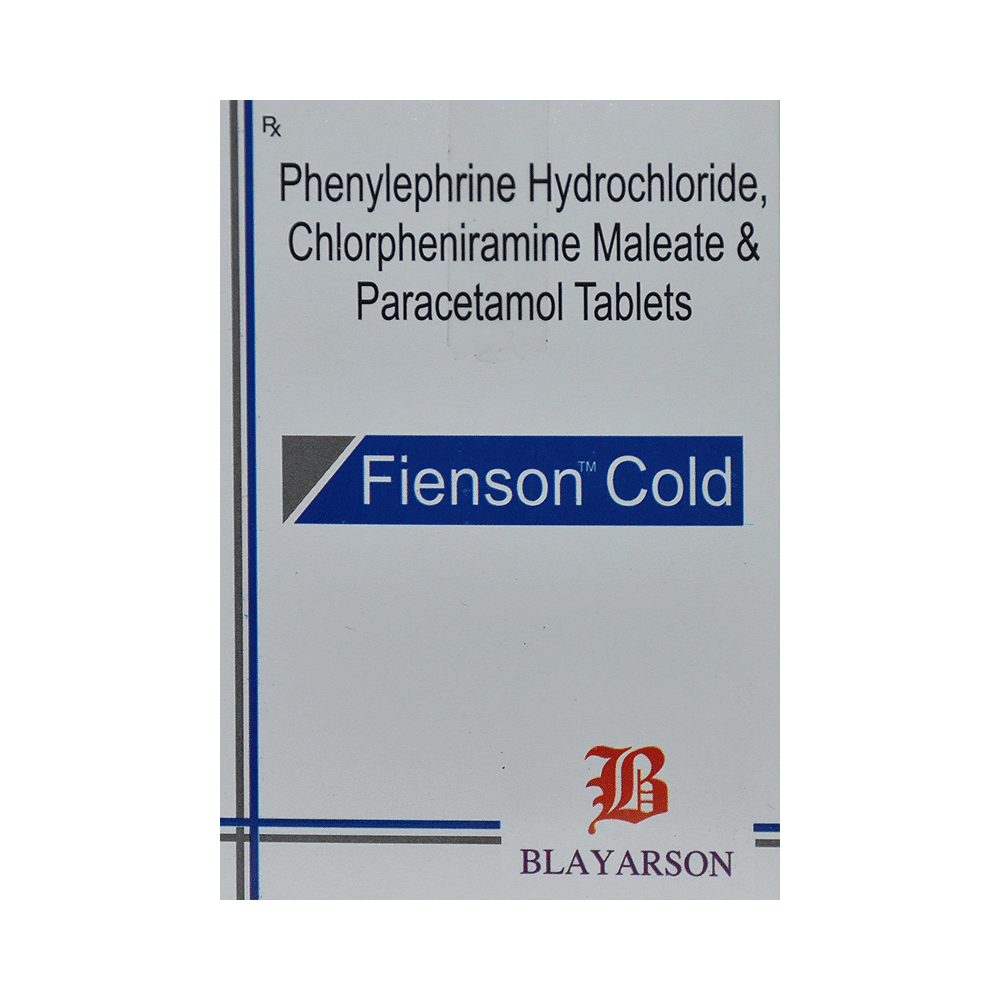
Rhinend Tablet
Manufacturer
NV Lifecare Pvt Ltd
Salt Composition
Chlorpheniramine Maleate (2mg) + Paracetamol (35mg) + Phenylephrine (10mg)
Key Information
Short Description
Rhinend Tablet is a medicine used in the treatment of common cold symptoms, providing relief from symptoms such as headache, sore throat, runny nose, muscular pain, and fever.
Dosage Form
Tablet
Introduction
Rhinend Tablet can be taken with or without food. The dose and duration will depend on the severity of your condition. You should keep taking the medicine even if you feel better until the doctor says it is alright to stop using it. Using this medicine may cause a few common side effects such as nausea, vomiting, sleepiness, dizziness, and headache. If any of these side effects do not resolve with time or get worse, you should let your doctor know. Your doctor may be able to suggest ways of preventing or reducing the side effects. In general, you should try to use the smallest amount necessary to control your symptoms.
Directions for Use
Take this medicine in the dose and duration as advised by your doctor. Swallow it as a whole. Do not chew, crush or break it. Rhinend Tablet may be taken with or without food, but it is better to take it at a fixed time.
How it works
Rhinend Tablet is a combination of three medicines:
Quick Tips
Rhinend Tablet helps relieve symptoms of cold and flu such as headache It may cause dizziness and sleepiness. Don't drive or do anything that requires mental focus until you know how it affects you. Avoid consuming alcohol when taking this medicine as it may cause excessive drowsiness. Do not take it with any other medicine containing paracetamol (drugs for pain/fever or cough-and-cold) without asking your doctor first. Inform your doctor if you are pregnant, planning to conceive or breastfeeding.
Related Medicines

Defrost Tablet

Dricoril Tablet

Coldwin 2mg/325mg/10mg Tablet

Flurelax Tablet

Fienson Cold Tablet

Levcast Cold Plus 2mg/325mg/10mg Tablet

Livcast Cold 2mg/325mg/10mg Tablet

Eco Cold Tablet

Rhinomac 2mg/325mg/10mg Tablet

Zukarest Tablet
Frequently asked questions
What are Rhinend Tablets used for?
Rhinend Tablets are a combination medication that helps relieve symptoms of common colds, including runny nose, watery eyes, fever, and headache. They contain three active ingredients: Chlorpheniramine (an antiallergic), Paracetamol/Acetaminophen (a pain reliever and fever reducer), and Phenylephrine (a decongestant).
Is Rhinend Tablet safe to use?
Rhinend Tablets are generally considered safe for most patients. However, some individuals may experience common side effects such as nausea, vomiting, allergic reactions, drowsiness, or headache. If you experience any persistent problems while taking this medication, inform your doctor.
Can I stop taking Rhinend Tablet when my symptoms improve?
Rhinend Tablets are typically used for short-term relief and can be discontinued once symptoms subside. However, continue taking the medication if your healthcare provider advises you to do so.
May Rhinend Tablet cause dizziness?
Yes, some patients may experience dizziness (feeling faint, weak, unsteady, or lightheaded) while using Rhinend Tablets. If you feel dizzy or lightheaded, it is best to rest for a short time and resume once you feel better.
Can Rhinend Tablet cause liver damage?
Rhinend Tablets are generally safe when taken as directed; however, taking excessive doses can potentially harm your liver. Avoid consuming alcohol while taking this medication, as it may increase the risk of liver damage.
How should I store Rhinend Tablet?
Store Rhinend Tablets in their original container, tightly closed, according to the storage instructions on the pack or label. Dispose of any unused medicine and ensure it is not consumed by pets, children, or other individuals.


